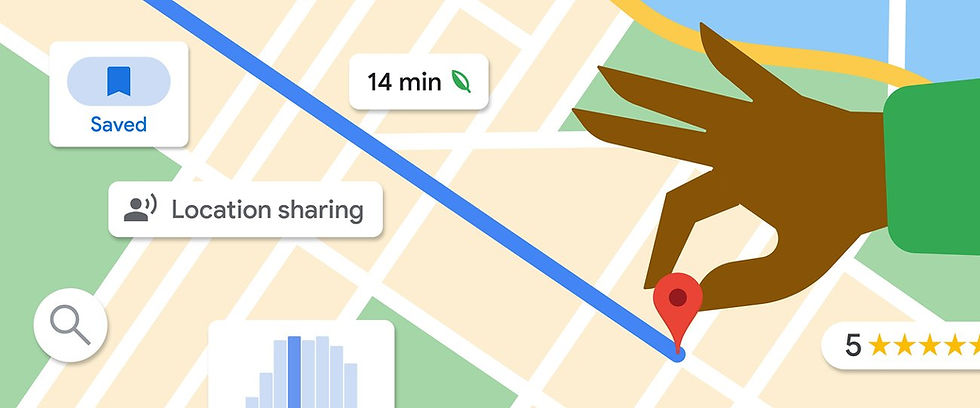AI Agents and the Future of Work (2025): Automation, Opportunity & Case Studies
- Abhinand PS
.jpg/v1/fill/w_320,h_320/file.jpg)
- 4 hours ago
- 3 min read
How AI Agents Are Reshaping the Future of Work in 2025
AI agents—autonomous digital coworkers handling everything from scheduling to strategic analysis—are fundamentally changing the way businesses operate and how people collaborate, learn, and innovate. In 2025, their influence is accelerating, with fresh case studies and industry stats showing deep transformation across every sector.

Introduction: The Rise of Autonomous AI Agents
AI agents have moved from experimental pilot projects to enterprise workhorses, powering productivity, reducing time-to-value, and enabling people to focus on high-impact, creative work. A PwC survey found nearly 80% of organizations now use AI agents in some capacity, while 88% plan to boost AI budgets—all aiming to stay competitive, agile, and future-ready.
Key Benefits: How AI Agents Transform the Workplace
Automating Administrative Tasks
Smart scheduling, real-time document management, and streamlined internal communication free up human talent for critical thinking.
Empowering Learning & Development
Personalized, just-in-time training and interactive onboarding help new hires ramp up faster—often slashing onboarding times by 30% or more.
Boosting Data-Driven Decision-Making
AI agents deliver actionable analytics, uncover workflow bottlenecks, and even forecast skills gaps before they impact business performance.
Optimizing Customer Service
Virtual assistants and smart chatbots now resolve up to 98% of customer issues in industries like banking and retail, boosting satisfaction and retention.
Driving Measurable ROI
Use cases show up to 70% reduction in R&D costs, decisive drops in downtime and manual errors, and double-digit gains in conversion rates and accuracy.
2025 Industry Stats: AI Agent Adoption at Scale
Statistic | Value / Insight | Source |
Organizations using AI agents | 79% (at least some level) | PwC 2025 |
Teams increasing AI-related budgets | 88% (next 12 months) | PwC 2025 |
Enterprises deploying AI agents at scale | 19% | PwC 2025 |
Customer service issue resolution by AI agents | 98% (Bank of America) | Case study |
Boost in conversion by retail AI agent (H&M) | 3× increase | Case study |
Manufacturing downtime reduction (Siemens Edge Agent) | 30% drop | Case study |
HR/Onboarding time decrease | 30–50% | Reports |
Real-World Use Cases: AI Agents in Action
H&M’s Shopping Assistant: 40% cut in cart abandonment, 3× conversion boost.
IBM Watson AIOps: 60% faster IT incident resolution, 80% fewer false alerts.
Darktrace Cybersecurity: 92% reduction in security breaches with autonomous threat response.
Healthcare (Mass General Brigham): 60% time saved on documentation, better patient engagement.
Ocado’s Fulfillment Agents: 99.9% order accuracy, real-time stock tracking.
Singapore’s “Ask Jamie”: 50% call deflection, 15 million+ questions answered, higher citizen satisfaction.
Enterprises like Bank of America, DHL, and Siemens all report clear productivity and cost advantages driven by AI agent adoption.
How to Scale AI Agents in Your Business (2025 Guide)
Start with Strategic Pilots:Identify routine or high-value workflows where agents deliver the biggest impact.
Train Teams Early:Invest in AI literacy and workflow design to ensure employees collaborate seamlessly with new digital coworkers.
Focus on Value and Governance:Define KPIs and monitor value delivery, as over 40% of agent projects risk failure without clear objectives or oversight.
Prioritize Data Security and Trust:Use transparent, explainable agents and bake-in privacy best practices from day one.
FAQ: AI Agents and the Future of Work
What’s the difference between AI agents and traditional bots?AI agents act autonomously based on context and data, making decisions and learning over time—unlike rule-based bots that require explicit programming.
Are AI agents replacing human jobs?Most case studies show they augment, rather than replace, human roles—especially by automating tedious tasks and freeing workers for creative, strategic work.
Which industries have seen the biggest gains from AI agents in 2025?Retail, banking, manufacturing, healthcare, and government are leading in both productivity gains and cost savings, thanks to real-world deployments.
What risks should organizations watch for?Poor governance, lack of transparency, and unaddressed data bias can disrupt adoption. Focus on clear ROI, workforce training, and responsible AI guidelines.
Conclusion: AI Agents—Essential to the Digital Workforce
AI agents are now indispensable partners at work, from speeding up daily admin to powering complex business strategy. Early adoption in 2025 is giving companies a sharp edge—unlocking value, accelerating growth, and preparing teams for the next frontier in digital collaboration. For case studies and tutorials on automation, visit abhinandps.com.



Comments